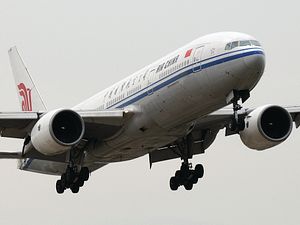Your weekly round-up of China news:
Meanwhile, China Daily reports that Sansha City, located on Woody Island (Yongxing Island in Chinese) in the Paracels, is moving to upgrade its facilities. Sansha was upgraded to a prefecture-level city in July 2012, and granted administrative power over all the islands and reefs China claims in the South China Sea – even though many of the features are occupied by rival claimants. Vietnam contests Chinese sovereignty over the Paracels, while Brunei, the Philippines, Taiwan, and Vietnam all claim some or all of the Spratly island group.
In a report before the local legislature, Sansha’s Deputy Mayor Feng Wenhai said that the city has big plans to provide more civilian services to both inhabited and uninhabited islands in the South China Sea. Inhabited islands will be outfitted by piers, Feng said, while also promised to “complete construction of seabed optical cable and put it into use and provide access to WIFI to all inhabited islands and reefs.” Uninhabited features will be outfitted with wharves, Feng said. In other words, China is far from done developing disputed features in the South China Sea.
Feng also said that Sansha will begin operating civil aviation services this year, including at (but not limited to) the military-civilian airport on Woody Island. That means China’s civilian test flights to Fiery Cross may be just the beginning of an actual civil aviation network in the South China Sea. Feng added Sansha would welcome private investment in these projects.
Moving on to China’s foreign policy — it’s official: Chinese President Xi Jinping will be making his first tour of the Middle East since assuming office. Xi will visit Saudi Arabia, Egypt, and Iran from January 19 – 23, China’s Foreign Ministry announced on Friday. That confirms previous reports from both Egypt and Iran that Xi was heading their way (see my take on Xi’s trip, from before the Chinese confirmation, here).
Ahead of the trip, China has been hard at work trying to dispel perceptions that Beijing really doesn’t have much of a stake (or much influence) in the Middle East. The government released its first-ever “Arab Policy Paper” on Wednesday, outlining its blueprint for relations with the Arab states (see my analysis here). China’s state news agency, Xinhua, used the paper as a springboard to proclaim that China is not an outsider in the Middle East.
Speaking of foreign policy, if’s often said that you can’t chose your neighbors – but what if China could? Global Times did a survey on which of China’s neighbors netizens would “move away” if they were able to redraw the map – and the results were fascinating. Unsurprisingly, Japan ranked at the top of unwanted neighbors, followed by the Philippines and Vietnam (all of which are engaged in maritime disputes with China). Number four, however, was North Korea, nominally a Chinese ally. The next three least-popular neighbors were India, Afghanistan, and Indonesia. Meanwhile, the most popular neighbors – the countries the most Chinese netizens voted they wanted to “stay as a neighbor” – were Pakistan, Kazakhstan, Nepal, and Tajikistan – with Russia (which is supposedly enjoying unprecedented cooperation with China) coming in a distant eleventh.
In other news, it’s been a big week for multi-billion dollar Chinese takeovers of U.S. companies. On Tuesday, China’s Dalian Wanda Group announced its purchase of Legendary Entertainment for $3.5 billion; today, Bloomberg reports that Chinese appliance giant Haier Group will buy General Electric’s appliance business for $5.4 billion.
Finally, Taiwan heads to the polls on Saturday for its long-awaited presidential and legislative elections. If you’re curious about what campaigning in Taiwan actually looks like, don’t miss this photo essay from Alice Ekman.
































